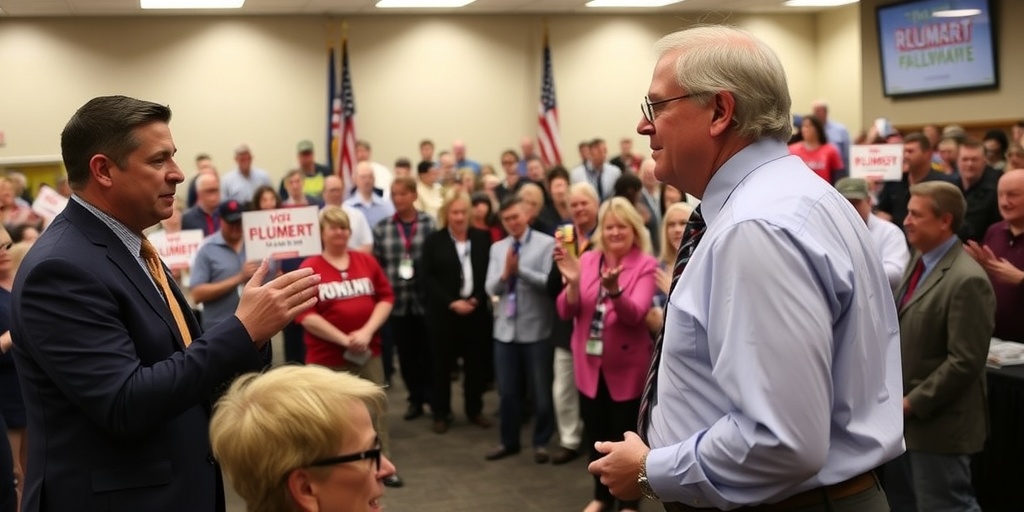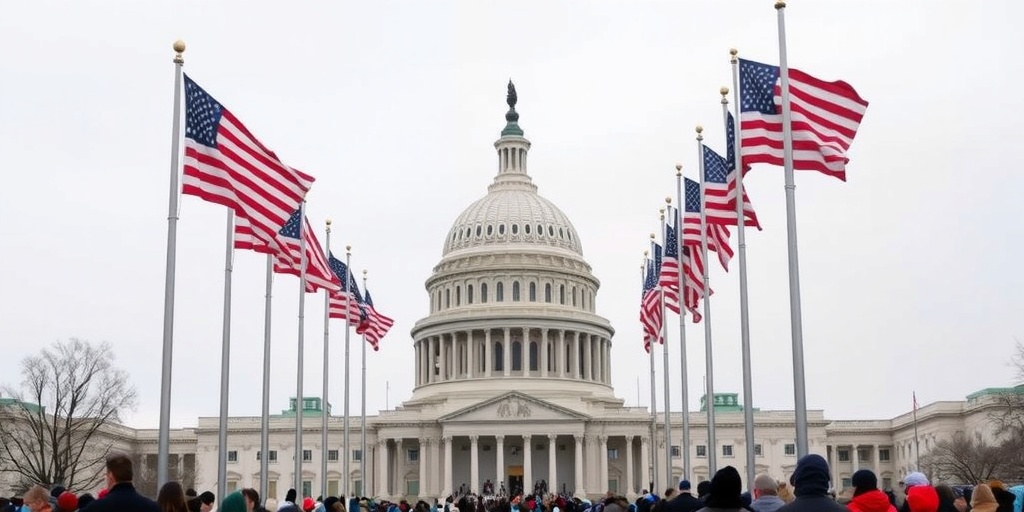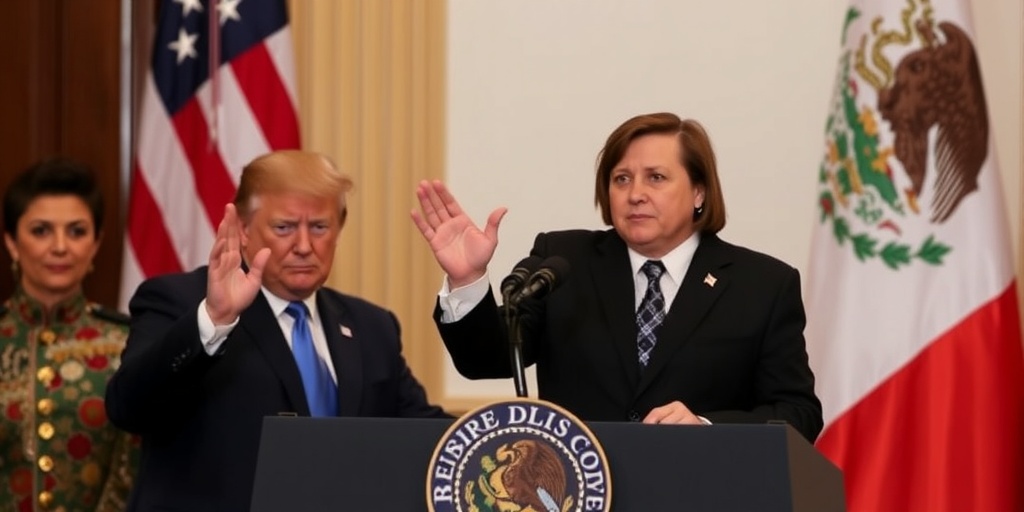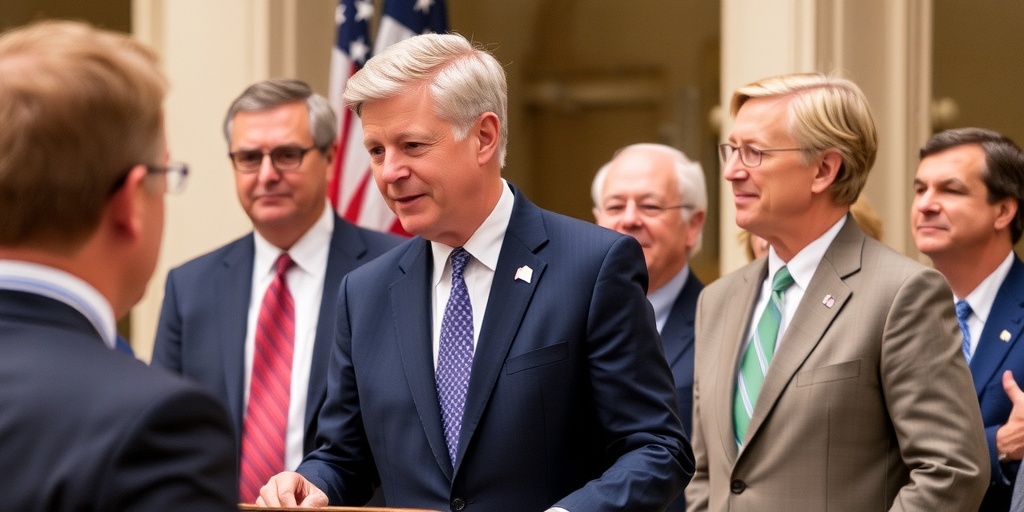Now Reading: Kennedy to Launch New Health Commission Privately
-
01
Kennedy to Launch New Health Commission Privately
Kennedy to Launch New Health Commission Privately
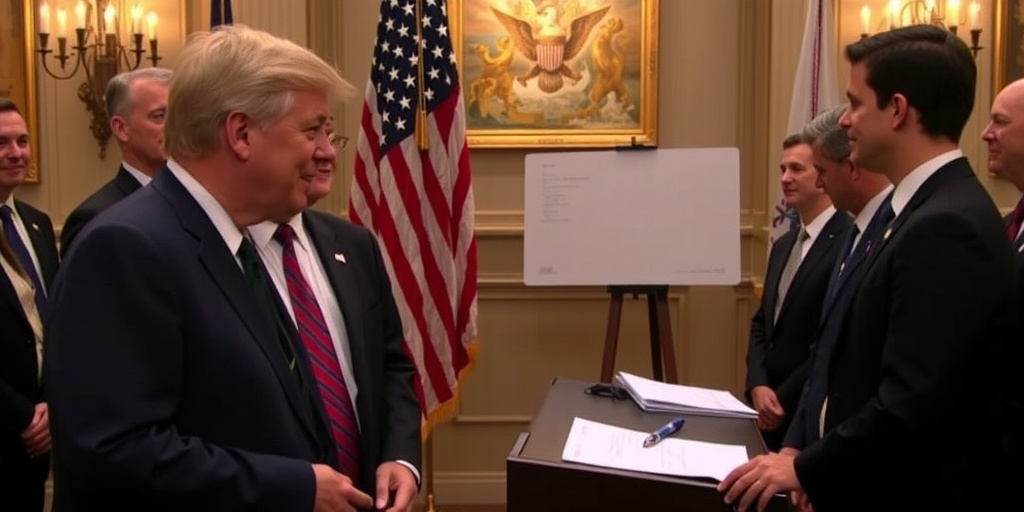
Health Secretary Robert F. Kennedy Jr. Faces Challenges Amid Measles Outbreak in Texas
Health Secretary Robert F. Kennedy Jr. is entering his new role during a turbulent time as West Texas grapples with a significant outbreak of measles. In response to this public health crisis, he is organizing the first meeting of the Make America Healthy Again (MAHA) Commission on Tuesday afternoon, which will be a private gathering. This commission was established by President Trump to tackle rising health issues in the country. Following the meeting, Kennedy is scheduled to engage with “MAHA moms” and other supportive figures.
The Make America Healthy Again Commission, chaired by Kennedy himself, is comprised of cabinet secretaries and high-ranking federal officials. The main goal of this initiative is to address and significantly reduce chronic disease rates and to put an end to childhood chronic diseases. According to an executive order signed by President Trump on February 13—just hours after Kennedy was confirmed and sworn in—the commission is tasked with developing strategies to improve the nation’s health landscape.
The inaugural meeting of this critical commission is set to take place within the White House complex, though it was not included on President Trump’s public schedule, raising questions about his possible involvement in the meeting. As the agenda for this session remains undisclosed, there is considerable speculation regarding the topics of discussion, especially in light of the growing public health crisis stemming from the measles outbreak.
Kennedy is notably recognized for his skepticism towards vaccines, which has become a focal point of his tenure as Health Secretary. His management of the measles outbreak in Texas has drawn significant scrutiny, particularly given his advocacy for alternative treatments. In public statements, he has recommended natural remedies such as cod liver oil and vitamin A as preventive measures against measles while refraining from endorsing traditional vaccination methods. Medical experts and public health authorities consistently affirm that vaccination is the most effective means to prevent the spread of highly contagious diseases like measles.
The urgency surrounding Kennedy’s actions is heightened by recent tragic developments; two individuals—an unvaccinated child in Texas and an unvaccinated adult in New Mexico—have died from measles in recent weeks. These fatalities mark the first measles-related deaths in the United States in the past decade, underscoring the severity of the current outbreak and the critical importance of vaccination coverage in preventing such incidents.
Beyond his focus on measles, Kennedy is also a vocal advocate for addressing what he describes as an epidemic of chronic diseases plaguing the nation, with a particular emphasis on children. He is passionate about promoting healthier food options by advocating for the removal of ultra-processed foods from grocery store shelves. His recent instructions to the Food and Drug Administration (FDA) reflect this commitment, as he called for the agency to explore ways to mandate greater ingredient transparency from food manufacturers to federal regulators.
Interestingly, these two strands of Kennedy’s advocacy regarding vaccine skepticism and chronic disease are closely linked. He has suggested that there might be a connection between the measles, mumps, and rubella (MMR) vaccine and the rise in autism cases, despite overwhelming scientific research that adamantly refutes such claims. This assertion has contributed to vaccine hesitancy and has raised concerns among health professionals who strive to combat misinformation in the public domain.
President Trump’s executive order that establishes the MAHA Commission specifically highlights the alarming increase in autism spectrum disorders in the United States, which the Centers for Disease Control and Prevention (CDC) estimates affects one in every 36 American children. Just last week, the Department of Health and Human Services indicated that the CDC would be investigating any potential links between vaccines and autism, a move that has generated both support and criticism.
As Health Secretary, Robert F. Kennedy Jr. is positioned at the intersection of public health policy and vaccine advocacy. The challenges he faces could have longstanding implications for the health and well-being of American children and families. With rising chronic disease rates and the ongoing measles outbreak, the actions taken by Kennedy and the MAHA Commission will be closely monitored as they work to navigate these complex health issues in the coming months.
Stay Informed With the Latest & Most Important News
Previous Post
Next Post
-
 01New technology breakthrough has everyone talking right now
01New technology breakthrough has everyone talking right now -
 02Unbelievable life hack everyone needs to try today
02Unbelievable life hack everyone needs to try today -
 03Fascinating discovery found buried deep beneath the ocean
03Fascinating discovery found buried deep beneath the ocean -
 04Man invents genius device that solves everyday problems
04Man invents genius device that solves everyday problems -
 05Shocking discovery that changes what we know forever
05Shocking discovery that changes what we know forever -
 06Internet goes wild over celebrity’s unexpected fashion choice
06Internet goes wild over celebrity’s unexpected fashion choice -
 07Rare animal sighting stuns scientists and wildlife lovers
07Rare animal sighting stuns scientists and wildlife lovers













